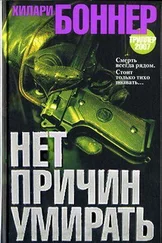‘He’s an arrogant bastard, all the same,’ muttered Saslow.
‘Or just confident,’ offered Willis.
‘Let’s hope to God he’s overconfident, Willis,’ responded Vogel. ‘We need him to trip himself up, because right now we are going nowhere with this investigation.’
‘That’s what usually happens in the end, isn’t it, boss?’ commented Saslow.
Vogel grunted.
‘I’m afraid there’s nothing “usual” about this case, Dawn,’ he said. ‘There’s something else that’s odd, too. The bastard’s choice of names. Trinity Road just heard from Thailand again. When Manee Jainukul’s sister was interviewed a second time, she remembered this Saul’s last name. Homer. Saul Homer. And we also have Leo Ovid. Both of possible classical derivation.’
Willis and Saslow looked blank.
‘You two need to read more. Ovid, the Roman poet? And Homer, the Greek author?’ Vogel sighed. ‘Look them up. And let’s feed all this new information into what we have compiled already.’
After a brief silence, Vogel continued. ‘Willis, get the whole team checking and double-checking everything. You can brief them. You know as much as I do. I need to think all this through.’
Willis nodded his understanding.
After the two officers had departed, Vogel tried to do what he did best: study and assimilate. But he couldn’t put his personal dilemma out of his mind; the awful and completely needless row with Mary lurked on the fringe of his thoughts, blurring his focus. He shook his head and looked at the names again: Leo. Al. Saul. Surely there had to be significance in the choice of the unlikely names of Homer and Ovid, he thought, both with that classical association? But the significance evaded him. Until things were set right with Mary, Vogel knew he wouldn’t feel right in himself.
Vogel called Mary then, told her briefly what was happening and apologised for the night before.
‘I can’t believe I behaved so badly,’ he said. ‘I’m so very sorry, sweetheart.’
‘I’m sorry too,’ Mary responded at once.
‘You didn’t do anything,’ he said. ‘I just took everything out on you, just like you said.’
‘It’s all right,’ she said. ‘It really is, David.’
He had known it would be, of course. Nonetheless, he breathed a sigh of relief.
‘Oh, and by the way,’ Mary continued, ‘Eytan called this morning, soon after you left.’
Vogel thanked her for telling him. They both knew he was far from ready to return the call. He was also far too busy. Vogel was about to say goodbye, when Mary suddenly said,
‘I was just thinking about the names you mentioned: Leo Ovid and Saul Homer and how you thought that they must be connected in some way. You don’t suppose that your killer likes word games just as much as you do, David?’
That turned on a switch in Vogel’s mind, which — now his argument with Mary was behind them — was suddenly clearer than ever. Vogel said a hasty thanks and a swift goodbye to Mary. He couldn’t wait to follow up her idea.
Like many compilers of crosswords, Vogel was a classicist and more than moderately familiar with ancient literature. He knew that Homer, the legendary writer of The Iliad and The Odyssey , was often considered to be the father of Greek mythology. Then there was Ovid, an important mythographer of the Virgil and Horace era. He felt so certain that those names hadn’t been picked at random. The two surnames held a direct link to ancient mythology and perhaps that was the biggest clue. Homer and Ovid were writers, they were creators of characters. Maybe what Vogel needed to look for was a mythological character with some, yet to be revealed, relevance to all that had happened.
He began scribbling the names on a piece of paper, jumbling them up, transposing letters. He kept thinking about what Mary had said: might the killer also like word games? As a crossword compiler, he was an expert juggler of letters and words. He played with all five names at first — an awful lot of letters, even for him. Then he separated the last names from the first names. He got nowhere with Homer and Ovid, so he started to concentrate on Al, Leo and Saul. He felt quite sure there was an anagram there somewhere.
He delved into his memory, dredging the very depths of his knowledge of ancient literature. Eventually something jumped out at him.
He turned to his computer and went into google. The results took just a moment or two.
Vogel leaned back in his chair and closed his eyes. Oh my God, he thought. Could this be possible? Leo, Al and Saul. The whole thing was unbelievable.
After just a few seconds he forced himself back into action. He printed out a couple of pages and reached for his phone to call Hemmings, then thought better of it. This needed to be done face-to-face. On the way through the incident room, he asked Willis and Saslow to join him.
They followed at once and he could feel their eyes on his back, as he strode purposefully along the corridor to Hemmings’s office. Vogel was excited and, at the same time, in a state of some shock. He could feel beads of sweat forming on his forehead and his trembling hands were clutching the freshly printed pages.
Hemmings was on the phone when Vogel poked his head around his office door and asked if he could see him for a minute. Immediately, the DCI ended his call and beckoned Vogel and his two lieutenants in. Hemmings had realised immediately that something momentous was afoot.
Vogel knew he was blinking behind his spectacles as rapidly as he ever had in his life. He couldn’t help it. He feared that what he was about to say was going to sound crazy, so much so that he wasn’t sure he could deliver it with the required conviction.
‘We are looking for just one man, for three very different murders,’ he began. ‘The DNA results have made that virtually irrefutable. The thing is, what I think I have discovered is, that our perpetrator actually thinks he is three different people. Indeed, he lives his life as three different people.’
‘You’re losing me, Vogel,’ responded Hemmings. ‘What possible evidence do you have for that?’
‘Not evidence exactly, sir, but either I’m right or we have a pretty unbelievable coincidence. I’ve been playing with the names the bastard’s been using, jumbling up the letters and that sort of thing. At one point I removed the duplication. The names Leo, Al and Saul, contain two As and three Ls. So by removing two Ls and one A, I was left with the letters LEOASU.’
‘And so?’ enquired Hemmings.
‘Well I tried looking for anagrams, any combination of all, or some, of those letters that might make a word, or rather a name. One combination forms the word Aeolus. It even uses all the letters. AEOLUS. And it hit me straight away. I was focusing on some kind of connection with ancient mythology — because of the last names our killer had used, Homer and Ovid — and I remembered, or half-remembered anyway, who Aeolus was. I mean, it’s pretty unbelievable, but…’
‘Vogel, get on with it,’ instructed Hemmings.
‘Yes sir.’
Vogel looked down at the Wikipedia printout in his hand.
‘“ Aeolus, a name shared by three mythical characters, was the ruler of the winds in Greek mythology. These three personages are often difficult to tell apart and even the ancient mythographers appear to have been perplexed about which Aeolus was which .’”
Vogel lowered the printout and looked directly at Hemmings. ‘It was Aeolus who gave Ulysses a tightly closed bag containing captured winds, so that he could sail easily home on a gentle, easterly breeze. But his men thought the bag was filled with riches, they opened it and unleashed a hurricane. And Homer relates that story in The Odyssey, his masterpiece.’
Читать дальше












